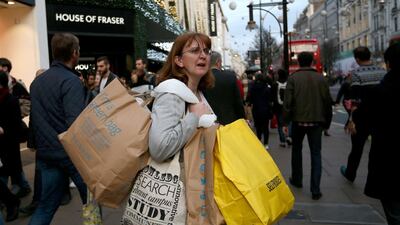If you think you are a savvy female shopper, think again. You may not be as good at saving as you think. And that’s not because women are worse at finances or maths, but because retailers are charging more for the same products when they are aimed at women.
A recent study by The Times newspaper found that, in the UK, products marketed at women were 37 per cent more expensive than similar items marketed at men. In the US, a study by the New York City department of consumer affairs found a markup of 7 per cent.
The difference can be as stark as pink razor blades costing double the price of other blades or Levi’s charging 46 per cent more for women’s jeans than men’s.
Many brands are being criticised for acting in a discriminatory fashion against women and girls. Specifically, they are being lambasted for imposing a financial gender penalty, for lacking in authenticity and respect with regards to their consumers, and for being in it just for the money and not thinking about the wider effect on society and the indirect discrimination they are demonstrating.
Some might argue that if a pink hair-removal product can bring a higher price, that’s just price elasticity. But it’s too easy to overlook that these decisions have a negative social implication.
It’s glib to say that if women are willing to pay the extra, then they should suffer. Such a belittling and derogatory attitude reveals that the overall status of women as seen by society, and the experience of being a woman, are far from satisfactory.
There’s little understanding of what it is actually like to face life as a woman when such penalties come thick and fast from every direction, and when each individual penalty is dismissed as trivial.
The collective effect of such constant instances of discrimination isn’t really felt in its entirety until you walk in the shoes of that person. And that’s why what could be justified as a one-off business decision must be challenged.
We ought to interrogate our actions for the effect they have and the wider social attitudes that they repeat. When they are repeated again and again in different aspects of someone’s experience, they severely effect the entire quality of life. Small actions perpetuate a wider picture.
This seemingly small price differential fits into a wider experience of being female. Pay is lower, product costs are higher, expectations to be made up, groomed and fashionable are stronger.
People reject the responsibility they hold by saying that their own action is so small, what is the problem? So when a woman complains of being catcalled, she’s told to lighten up – or worse, blamed for it.
When a Muslim is joked about as a terrorist, it doesn’t account for the fact that that person is more likely to be under police scrutiny. When black people in America are told they’ve made it because Barack Obama is president, it doesn’t take into account the constant experience of ingrained negativity, social deprivation and exclusion from power.
We mustn’t excuse inbuilt discrimination, but rather question the effect of our actions. The pink razor should remind us that we have to work hard to avoid the insidious entrenchment of discrimination that we can all fall prey to.
Shelina Zahra Janmohamed is the author of Love in a Headscarf and blogs at www. spirit21.co.uk

